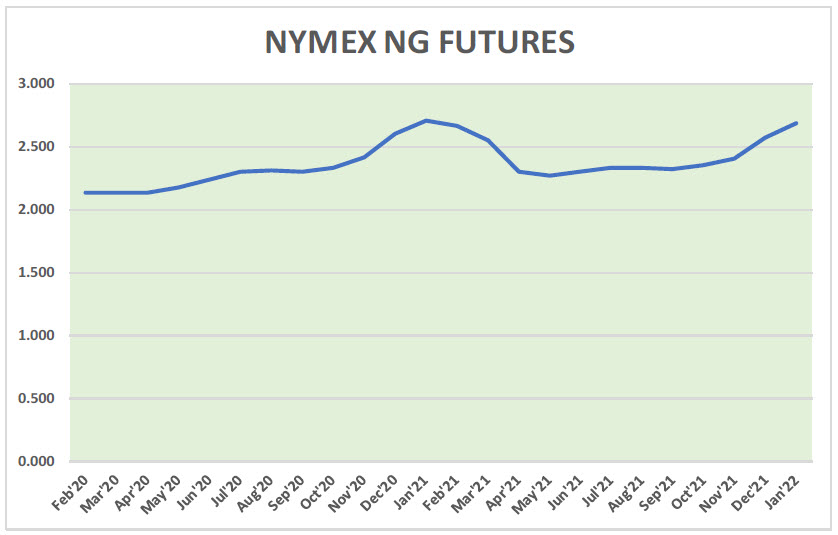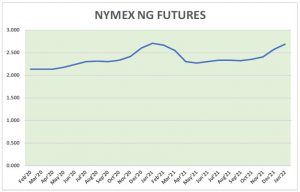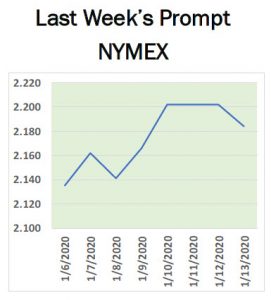
Natural Gas News – January 13, 2020
Natural gas seen as a solution for wet grain
The Dickinson Press reported: Mike Brandenburg says this is the first year his family has had to dry almost every bushel of soybeans and corn they’ve produced on their farm near Edgeley. For farmers, the difference between the past and today is corn, Brandenburg points out. Ten years ago, the Dakotas and northern Minnesota raised an average of 100- to 150-bushels per acre corn. Today, many farmers are raising 150- to 200-bushels per acre. “With the genetics that are coming into play, I could see us, on a consistent basis, going to 200- to 250-bushel (per acre) corn,” Brandenburg says. He and three sons, Micah, 41, Marcus, 40, and Derek, 31, and their families each have their own land, but they farm in collaboration, sometimes sharing lease or share equipment. Going forward, as farmers move toward growing longer-maturity corn
that produces higher yields, industry will need more drying capacity. For more on this story visit thedickinsonpress.com or click https://bit.ly/3a6a83o
NOAA finds new liquified natural gas pipeline in Oregon will not jeopardize species
Phys.org reports: NOAA Fisheries has issued a final biological opinion on construction and operation of the Jordan Cove terminal in Coos Bay, Oregon, and the associated 229- mile long Pacific Connector Liquid Natural Gas pipeline. After conducting a thorough review, NOAA scientists determined that the proposed action does not jeopardize protected species or adversely modify their critical habitat. “NOAA’s opinion on Jordan Cove will pave the way for more American jobs and vastly expanded exports of domestically sourced liquified natural gas to prized Asian markets,” said Secretary of Commerce Wilbur Ross. “The speed of this decision was only made possible by recent reforms to the infrastructure permitting process, while still allowing the relevant authorities ample time to determine that no species or critical habitat
would be jeopardized. The pipeline would connect the terminal to other major pipelines in the West, linking it to gas supplies across the United States and Canada. For more on this story visit oilprice.com or click https://bit.ly/35QRppj
This article is part of Daily Natural Gas Newsletter
Tagged: natural gas, new liquified natural gas pipeline, NOAA, Oregon
MARKET CONDITION REPORT - DISCLAIMER
The information contained herein is derived from sources believed to be reliable; however, this information is not guaranteed as to its accuracy or completeness. Furthermore, no responsibility is assumed for use of this material and no express or implied warranties or guarantees are made. This material and any view or comment expressed herein are provided for informational purposes only and should not be construed in any way as an inducement or recommendation to buy or sell products, commodity futures or options contracts.







